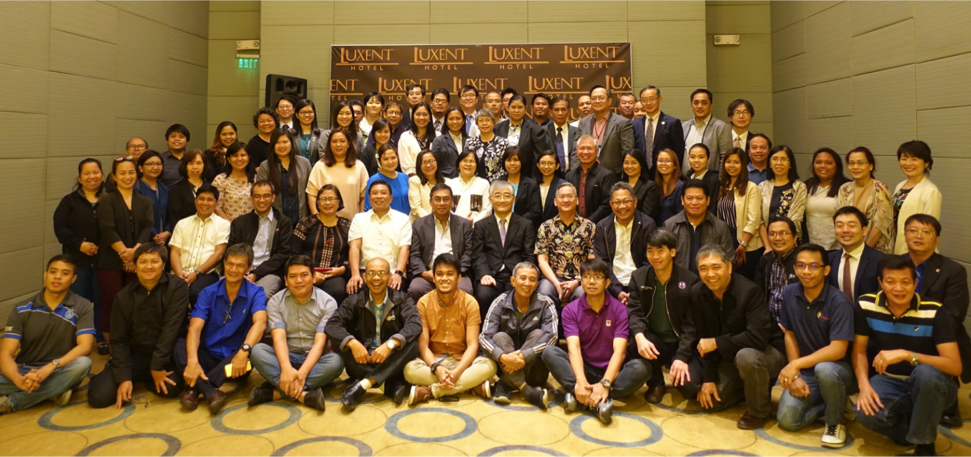
The International Centre for Water Hazards and Risk Management (ICHARM) conducted the plenary and technical meeting on water resilience and disasters last February 28, 2019 at Luxent Hotel Quezon, City. It is the 3rdplenary meeting aimed to update on the activities and implementation process of platform. This event was attended by representatives from Japan International Cooperation Agency (JICA), Public Works Research Institute (PWRI), University of Tokyo, Department of Science and Technology-Philippine Council for Industry, Energy and Emerging Technology Research and Development (DOST-PCIEERD), Philippine Institute of Volcanology and Seismology (PHIVOLCS), Philippine Atmospheric, Geophysical and Astronomical Services Administration (PAGASA), Department of Environment and Natural Resources-National Mapping and Resource Information Authority (DENR-NAMRIA), Department of Public Works and Highways (DPWH), National Water Resources Board (NWRB), National Irigation Administration (NIA), National Economic and Development Authority (NEDA), Local Government Units of Region III and XI and UP Constituent Universities from Los Baños, Diliman and Mindanao.
Dr. Renato Solidum, Jr., Undersecretary for Disaster Risk Reduction and Climate Change of the Department of Science and Technology (DOST) and Platform Co-Chair, highlighted the importance of national and international collaboration in seeking for solutions in disaster risk reduction. He also mentioned that this initiative has a goal of attaining “safe and resilient community.” Engr. Patrick Gatan, Project Director of Flood Control Management Cluster of the Department of Public Works and Highways (DPWH), stated that “flood investments should be scaled-up to provide nationwide solution to flood problems and challenges.” He added that the output of the meeting should be maximized and improvement of coordination among international, national and local agencies is vital in this endeavor.
Dr. Toshio Koike, Director of ICHARM, discussed recurrent water-related disasters in Japan and their countermeasures. For the next steps, integration of pro-active planning, multi-stakeholder participation and infrastructure investment are important in addressing water-related disasters in the county, he added.
Integrated risk assessment will include data integration of damage and hazard including socio-economic component. It is a combined effort from different national and local government agencies (e,g. DOST, LGU, PSA) to initiate flood forecasting and early warning systems in order to assess climate change impacts to the communities. In a holistic view, data integration is beneficial to the country as this will be the basis for investments, decision-making and policy-making towards reducing water-related disaster risk and improvement of the welfare of communities.
The attendees were hopeful that through data integration, flood forecasting and early warning, climate change and economic assessment and contingency planning with participation of different stakeholders, resilience on water-related disasters will be attained in Davao and Pampanga area as proposed sites and in the whole country in the future. (Jessa O. Aquino)

